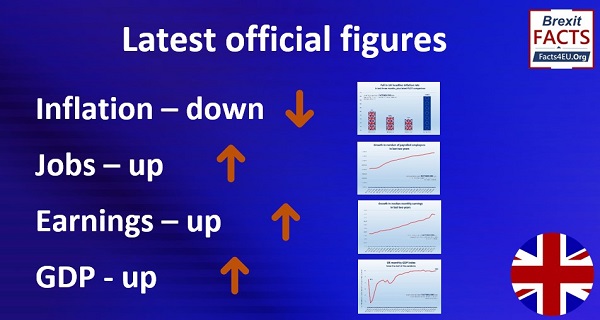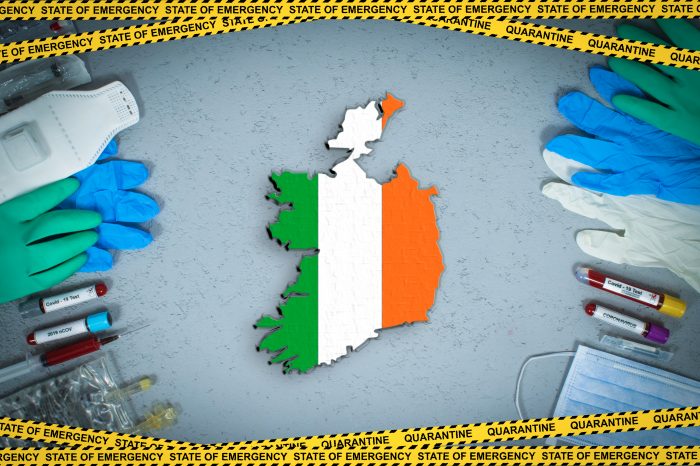The Hidden Costs of EU Membership
Is the European Union (EU) draining our country of the vitality needed to create prosperity for all? Are we losing the means for improving living standards including motivation, ethical standards, resources, funding and efficient resource allocation pathways, which cost us dearly?
There is evidence for the EU’s actual cost being far greater than the figures usually highlighted, such as our annual net contribution (often stated as £55 million per day) or the extra £1.7 billion demanded last year because our economy is apparently ‘thriving’. The problem is that it is easy to slip into the simplification of ignoring items that cannot be easily quantified; the McNamara Fallacy which can have disastrous decision-making consequences.
Our net contribution to the EU (visible and quantifiable) effectively disappears from our economy and boosts economies elsewhere. Obviously this money can no longer help us, and in certain areas of the economy our money could have made a considerable difference, there is a multiplier effect present. For example, ‘EU tax pounds’ (spent on EU bureaucrats and their perks) if used to fund research or retained by businesses and invested in production efficiency could have helped produce scientific breakthroughs, better products, lower prices, more competitive enterprises and higher paid jobs, in turn worth many pounds of return for each pound used (or ‘invested’). So to service the voracious appetite of the EU we have worked hard to raise the money in the first place and then had to forego a considerable benefit (opportunity cost) because we cannot allocate that money more beneficially in ways we choose. This is only the start of where we are losing out.
The EU works hard at devising ever expanding legalistic rules and regulations, which are of a ‘one size fits all’ nature to apply to all member countries. There is always a direct cost for compliance (by the targeted individuals and organisations) and enforcement (by one or more regulatory bodies). And an opportunity cost, if the money could have been better used elsewhere, for example, on research, improving competitiveness, skills and productivity, paying higher wages, or reducing prices. These rules and regulations may also be ill-conceived with harmful effects and resulting opportunity costs, for example, creating other victims, continuing obsolete practices, shrinking the talent pool available of people who could otherwise be more productive, and imposing dis-proportionate burdens on smaller and more innovative enterprises making their existence and growth less likely.
EU social engineering, in particular the destruction of the democratic nation state and heritage, transfer of wealth (and businesses) to the less successful EU nations, uncontrolled mass migration, and forcing authoritarian legalistic regulations upon societies, have costs not just in financial terms or individual quality of life, but in identity, ethical standards and social cohesion. Inevitability a problem created by the EU needs to be managed somehow (if at all possible), and this has costs, and diverts resources that could be more productive elsewhere, again substantial opportunity costs exist.
The opportunity costs identified so far are part of a bigger issue, that of the quality or performance of government. Poor government will inevitably cost more than it should through higher taxation (and associated opportunity costs) than if it was better run or more efficient, and there will be costs and opportunity costs arising from the consequences of its poor policies and mistakes (for example, the destruction our fishing industry or the negative effects of the Euro). The EU is a remote, bureaucratic, ideologically driven and autocratic institution. It is also a centre of corporatism, ruled by the few, for the few; big government, big business; big other organisations. Based on its track record, the EU can be expected to go on delivering an inferior government performance than a much more democratic national government in tune with the people and the Internet Age. There is empirical evidence that countries outside the EU like Norway an Switzerland do better economically than their equivalents inside.
Various writers have plotted the direction of bureaucracies with somewhat similar conclusions regarding their increasing arbitrary unreality and costs, and destructive or inhuman effects, including Franz Kafka, The Castle, C Northcote Parkinson, Parkinson’s Law and The Law and Carroll Quigley, The Evolution of Civilizations. Joseph Schumpeter, the economist and political scientist, has written about corporatism in Capitalism, Socialism and Democracy. The EU has emasculated national parliaments and disenfranchised electorates pretty much in textbook form. Such activities bear direct costs or burdens and much larger opportunity costs; loss of democratic accountability and sovereignty impact our lives in many intangible ways. More tangibly we cannot readily carry out (Schumpeter’s) Creative Destruction to the increasingly obsolete EU in order to facilitate much innovation, wealth creation and improved wellbeing; again a considerable opportunity cost. The EU appears far more interested in seizing and somewhat arbitrarily re-distributing existing wealth than in supporting us all becoming richer through the creation of new wealth, consequently resulting in us all being poorer.
Yet the biggest opportunity cost of all would be the decline and ultimately the collapse of European civilisation, hastened by the actions (or inactivity in the face of crises) of the EU. Parkinson in East and West and Quigley in The Evolution of Civilizations are too close for comfort in their prescient analyses of civilisations. The EU certainly displays characteristics of evolving from something that some years ago may have been useful into an extravagant institution that exists for its own sake, which these authors identify as a prelude to decay (of civilisations) and ultimately invasion. It is hard to see how the sclerotic EU can defy historical precedents and rejuvenate itself or the countries of Europe. Commonly the mainstream (such as the EU) is set in its ways and slow to adapt, progress (paradigm shifts or ‘thinking outside the box’ in particular) coming from the periphery as noted by Thomas Kuhn in relation to science in The Structure of Scientific Revolutions.
The actual cost of the EU in a competitive, changing world is therefore far greater than the obvious headline monetary figures, which are just the tip of a very large and destructive iceberg. It is an increasingly burdensome and out of date political/bureaucratic experiment. Historically our country, operating on the periphery of Europe, has performed better, often leading in many different fields including intellectual curiosity, philosophy, political thought and democracy, science, technology, education, international trade, financial services and the rule of law. Being held back and down by the institutionalised EU millstone around our collective necks rather than setting an example to everyone makes not just us, but the world poorer.








